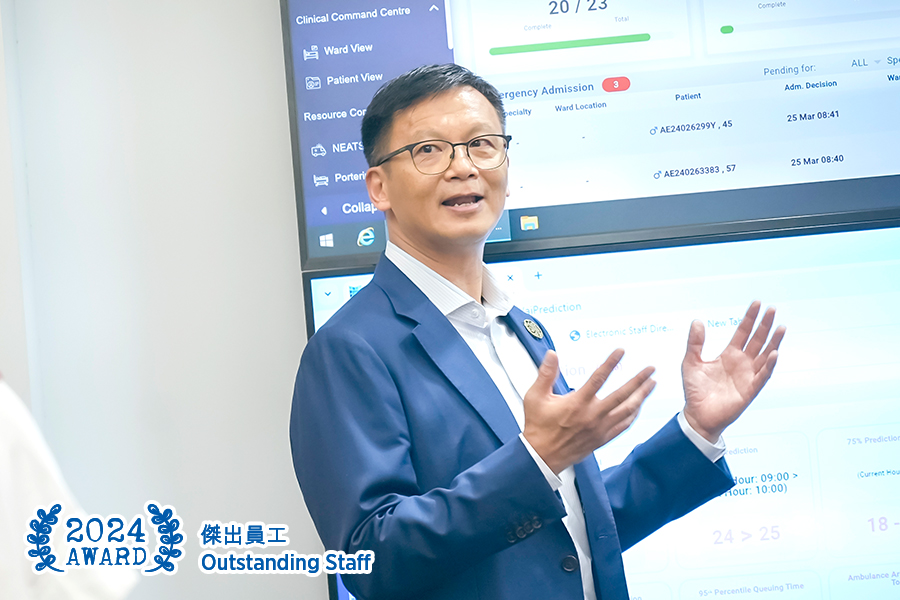Wisdom and warmth that technology cannot replace
 Dr Tsui Sik-hon
Dr Tsui Sik-hon
Deputy Hospital Chief Executive / Consultant (Accident & Emergency), Queen Mary Hospital
“I have been working in the Accident & Emergency (A&E) Department for 30 years probably because I do not want to step outside my comfort zone,” jokes Dr Tsui Sik-hon. In reality, comfort is in scarce supply in the fast-paced A&E. “You do not know what is going to happen in the next minute, so you have to multitask, you have to be calm, and you have to be fast,” says Dr Tsui. “The fact is my job is full of challenges and satisfaction.”
A&E Departments see a daily cascade of extreme and traumatic cases. Dr Tsui recalls one patient who turned blue after taking 300 sleeping pills and fortunately received timely administration of antidotes, and another who brought the cobra that bit him into A&E to ask for antivenom. “Do not believe martial arts novels that you only need to find the antidote within 49 days to save the life of a poisoned person,” Dr Tsui advises. “The treatment of poisoning should be quick and accurate.”
Dr Tsui observed that the cases of poisoning have been on the rise, so he decided to develop a specialised toxicology service, with focus on training doctors. “Poisoned persons are usually admitted to A&E. As the first line of defence, more A&E doctors specialised in toxicology can provide appropriate treatment for patients, so as to increase their survival rate and the chances of recovery.”
Dr Tsui was the Chief of Service of A&E and the Chairman of Coordinating Committee in A&E of Hospital Authority. He believes that with the aid of new technology, healthcare professionals will be able to perform investigation and give diagnoses more quickly and accurately, but he insists the key to good patient care will always be human touch. “I always remind young colleagues to communicate with patients. For example, is the patient alone? Do they look worried or are they optimistic? Observing the patients’ eyes, emotions and manner of speaking can be more effective in identifying their problems. It is the human touch that will prevent artificial intelligence from replacing us. And I deeply believe that this is the quality healthcare professionals should maintain.”